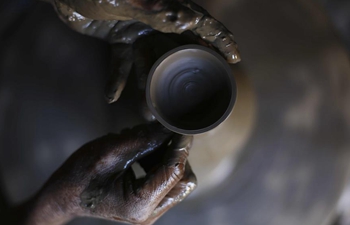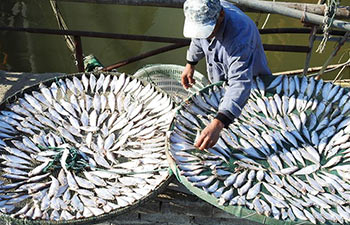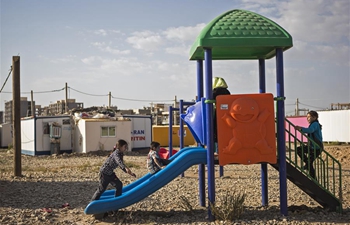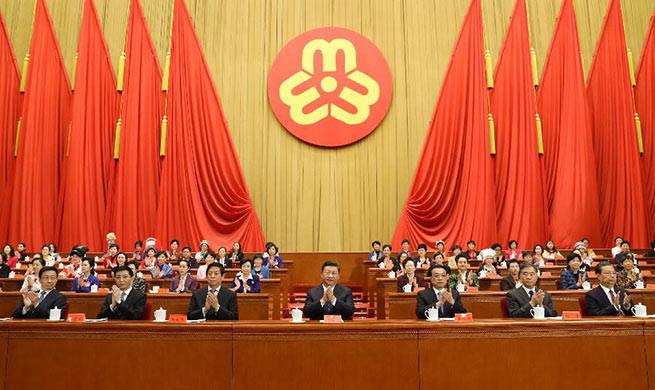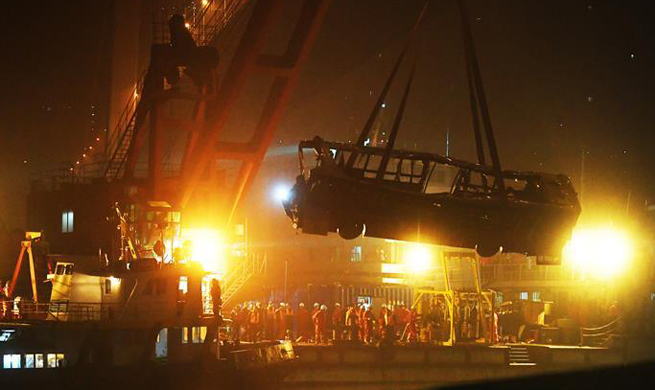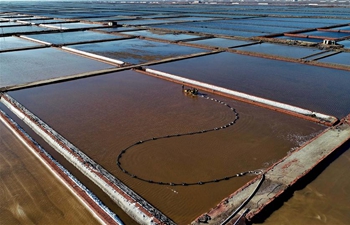By Fone Ying Kyu
YANGON, Nov. 1 (Xinhua) -- Myanmar's biggest business organization has called on the European Union (EU) to deliberate on intended trade sanctions on the country, expecting a balanced assessment with the issue after meeting with representatives from all sectors.
An EU monitoring team, in its mission to observe and assess facts if it should withdraw its existing Generalized Scheme of Preference (GSP) previously offered to Myanmar, arrived in the weekend to meet with labor and business circles in Yangon.
The EU Trade Commissioner sent the monitoring team to Myanmar for the trade sanction assessment out of an allegation that Myanmar violated human rights as well as workers rights. It is considering to withdraw its GSP offered to Myanmar.
The Union of Myanmar Federation of Chambers of Commerce and Industry (UMFCCI) urged in a press release issued late on Tuesday for support from the international community including the EU for the long-term development of the country's present status, while Myanmar is in a democratic transition with momentum, assisted by the EU.
In a series of negotiations at the EU Office in Yangon which began in the weekend through to Tuesday between the EU mission and civil society organizations and business circle as reported by the official Global New Light of Myanmar, Myanmar's trade unions have opposed the EU's intended trade sanctions on the country, saying that the move is not a constructive approach to deal with EU's allegation that Myanmar is accused of violation of human rights and workers' rights.
If EU suspends GSP, Myanmar's gross domestic product (GDP) will decrease and harm the foreign investment as well as the employment market, said leaders of the Confederation of Trade Unions, warning that the GSP withdrawal could affect EU's participation in Myanmar's transition.
The negotiating leaders urged the EU to reconsider and judge if its GSP withdrawal is a good option to deal with disputes.
Senior official of the Directorate of Investment and Company Administration (DICA) U Than Aung Kyaw said the government is deliberating to work out a policy if EU revokes the GSP.
Myanmar reinstated EU's GSP since July 2013 and has enjoyed the GSP for export of fisheries, rice, pulses, agro products, bamboo and rattan finished products, forestry products, apparels and finished industrial goods.
Of the foreign investment in Myanmar that reached 77.285 billion U.S. dollars as of the end of August 2018 since late 1988, Britain stood as the fifth largest investor with 4.382 billion U.S. dollars, representing the top investor among the EU countries, followed by the Netherlands with 1.528 billion U.S. dollars at the ninth position.
In June's 2nd Myanmar-EU Economic Forum held in Nay Phi Taw, Myanmar Vice President U Myint Swe invited EU entrepreneurs to invest in prioritized sectors in Myanmar under its new investment law and company act, which will create more attractive economic environment for investors.
Pledging a grant aid of about 300 million U.S. dollars to Myanmar for promoting the country's quality education, the EU also voiced strategic support of Myanmar's reform, pledging to cooperate with Myanmar to strengthen democracy, good governance, rule of law, peace, national reconciliation and human rights to tackle poverty and to boost trade and investment.
According to official statistics, investment in Myanmar from 300 EU companies reached 6.6 billion U.S. dollars as of April 2018, making up 8.68 percent of Myanmar's total foreign investment.
In last fiscal year 2017-2018, the country earned about 2.5 billion U.S. dollars from garment exports.
The country's garment is mostly exported to Japanese and European markets. There are over 400 garment factories with more than 300,000 workers in the industry.






